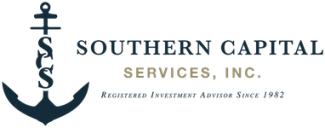Can the Stock Market Continue its Rapid Recovery?
by Eric Nager on Apr 24, 2020
The answer is MAYBE. It depends upon the outcome of a mighty battle that surprisingly is not focused on the medical progress regarding Covid-19. Although the virus is unquestionably the underlying cause of the problem, interest rates, money creation and corporate earnings are the focal points of this conflict. Federal Reserve policy regarding interest rates and QE – the injection of enormous amounts of money into the financial system – are on one side and the sharp decline of corporate earnings are on the other. It’s the Fed and TINA vs. bad corporate earnings.
“DON’T FIGHT THE FED” is an old stock market adage that means the Fed has unlimited money and power over short-term interest rates so don’t be on the opposite side of their current policy. Historically going against the Fed has been hazardous to one’s wealth. In the current situation the Fed has lowered interest rates to near zero and has committed unlimited QE to fight the virus problem. So as we have said before the Fed is all in.
TINA is a Wall Street acronym for - There Is No Alternative - meaning that at this time the expectation is that the Fed created money will ultimately flow into the stock market because the other major asset classes (cash, bonds, commodities, real estate) are not that attractive. This is especially true for investors seeking cash yields from their investments. Cash pays close to zero interest, bonds (the 10 year treasury) pays six-tenths of one percent, commodities pay nothing and represent great volatility and real estate is very uncertain because it is not liquid and presently, many corporate and individual tenants are not able to pay their rents. Therefore, a corporation with a strong balance sheet and a history of paying dividends through good times and bad is very attractive. Also, stocks are liquid so an investor can get out if necessary.
BAD CORPORATE EARNINGS are what happen when the government shuts down a major portion of the economy. If companies cannot operate (do business) and yet many of their expenses continue, then their ability to earn money evaporates. The longer that this condition lasts, the more damage will be done to the economy. Remember, normally stocks trade on a multiple of their earnings. The price to earnings ratio is the barometer. The remedy will come about when the health risk is under control and the economy can re-open.
We don’t doubt the long-term, the virus will ultimately run its course and the Fed money creation will bring about the recovery, but in the near-term the battle will rage on. Of course, a significant breakthrough in dealing with the virus in the testing or therapeutic areas would be a game-changer.
The market has staged a dramatic recovery from its March low and a pullback is quite normal. However, predicting the near-term action in the equity markets is almost impossible. You may have noticed that we have been making some changes in the mix of assets is some of our portfolio objectives, if you have questions about those in your portfolio please contact us.
